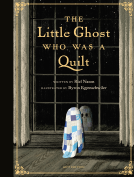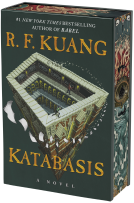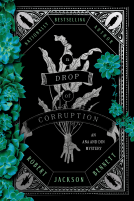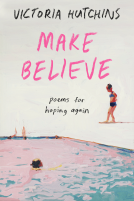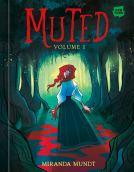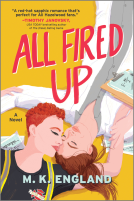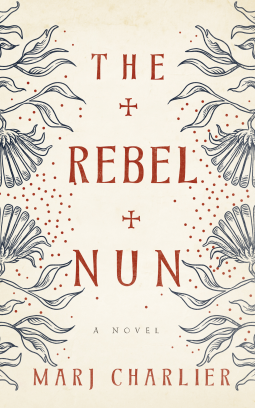
The Rebel Nun
by Marj Charlier
This title was previously available on NetGalley and is now archived.
Send NetGalley books directly to your Kindle or Kindle app
1
To read on a Kindle or Kindle app, please add kindle@netgalley.com as an approved email address to receive files in your Amazon account. Click here for step-by-step instructions.
2
Also find your Kindle email address within your Amazon account, and enter it here.
Pub Date Mar 02 2021 | Archive Date Jun 28 2021
Talking about this book? Use #TheRebelNun #NetGalley. More hashtag tips!
Description
Marj Charlier’s The Rebel Nun is based on the true story of Clotild, the daughter of a sixth-century king and his concubine, who leads a rebellion of nuns against the rising misogyny and patriarchy of the medieval church.
At that time, women are afforded few choices in life: prostitution, motherhood, or the cloister. Only the latter offers them any kind of independence. By the end of the sixth century, even this is eroding as the church begins to eject women from the clergy and declares them too unclean to touch sacramental objects or even their priest-husbands.
Craving the legitimacy thwarted by her bastard status, Clotild seeks to become the next abbess of the female Monastery of the Holy Cross, the most famous of the women’s cloisters of the early Middle Ages. When the bishop of Poitiers blocks her appointment and seeks to control the nunnery himself, Clotild masterminds an escape, leading a group of uncloistered nuns on a dangerous pilgrimage to beg her royal relatives to intercede on their behalf. But the bishop refuses to back down, and a bloody battle ensues. Will Clotild and her sisters succeed with their quest, or will they face excommunication, possibly even death?
In the only historical novel written about the incident, The Rebel Nun is a richly imagined story about a truly remarkable heroine.
A Note From the Publisher
Advance Praise
“Charlier draws on history not only for details about the real Clotild but also for the circumstances of women in a time of growing religious misogyny, and that is what makes The Rebel Nun so impactful…Charlier writes vividly about an appalling time when women were little more than chattel. With its rich liturgical and feminist detail, The Rebel Nun is a story of an age-old rebellion that speaks to today’s women.”
-Denver Post
“What could lead nuns to armed rebellion?…This thoughtful imagining of the underlying causes and characters involved in the revolt centers on Clotild, the leader of the insurrection…Charlier carefully constructs a narrative that positions Clotild, a pagan at heart despite her outward piety, as a reluctant revolutionary who pushes for fairness in a Christian world increasingly dominated by men. With power available to so few women, Clotild dares to imagine freedom, despite its cost.”
-Booklist
“The Rebel Nun is a well-written window into the life of a sixth-century royal bastard and the changing landscape of holy power structures. Charlier writes a strong voice for Clotild, with vivid descriptions of a daily life that brings readers along into her world. The research shows, and Charlier does an excellent job of seamlessly integrating the historical record with her own fiction.”
-Historical Novels Review
“The story of a community of women in crisis and the power they found through their will to save themselves, The Rebel Nun tells the fictional truth behind the historical rebellion of the Holy Cross nuns in 589 CE, as recounted in her latter days by one of the rebellion’s leaders, Clotild…Rich in facts and foreshadowing, the historical novel The Rebel Nun finds in the nuns’ rebellion, and in Germanic tribal paganism, an inspirational morality tale and historical precedent for modern women to connect with their own powers, no matter the stakes.”
-Foreword Reviews
"Marj Charlier takes an obscure sixth-century tale and turns it into a stunning story of a nun caught up in the misogyny of the early Christian church. Led by Clotild, a king’s bastard daughter, a group of nuns attempts to rescue their monastery from the all-male church hierarchy. Extensively researched and rich in historical detail, The Rebel Nun tells of a time when women were chattel, when priests questioned whether females had souls. Charlier’s artfully written account of Clotild’s struggle to save her Medieval sisterhood from the dominance of kings and bishops is a perfect novel for today’s women.”
-Sandra Dallas, New York Times bestselling author
“The Rebel Nun is a gripping, well-told story of women fighting against a church and society dominated by men who are determined to defeat them in body and spirit. A great tale that will immerse you in a world so different—and not so different—from our own.”
-Philip Freeman, Fletcher Jones Chair of Western Culture at Pepperdine University, author of Saint Brigid’s Bones
“A startling look into a world I never imagined visiting—a sixth-century nunnery, where one bride of Christ only a generation away from paganism breaks her vows of obedience to the church’s male hierarchy and makes it her mission to battle the corruption of bishops oppressing the sisters of the Holy Cross. A well-wrought yarn reflective of historical fact.”
-Darryl Ponicsán, author of Eternal Sojourners
“The Rebel Nun is a gripping tale of heroism and audacity in the least likely of guises—a renowned cloister under the heel of the medieval church. With meticulous research and in exacting detail, Marj Charlier brings to light the remarkable exploits of Clotild, who leads her fellow sisters on a daring escape that culminates in bloody revolt, and a place in history.”
-Denise Heinze, author of The Brief and True Report of Temperance Flowerdew
Marketing Plan
National reviews and interviews
Historical-fiction conferences/panels
Social media campaign
Historical-fiction-focused digital advertising
Historical-fiction buzz mailing
Bookseller, library, and museum marketing
Featured title/author at library, bookseller, and consumer trade shows and conferences
Author website: www.MarjCharlier.com
Available Editions
| EDITION | Hardcover |
| ISBN | 9781094092751 |
| PRICE | $27.99 (USD) |
Featured Reviews
 Jessica F, Reviewer
Jessica F, Reviewer
This was a unique and enjoyable historic fiction. I loved that it was based on a historic woman who stood up and spoke out at a time when women, nuns especially, were supposed to be quiet and subservient. Clotild was the daughter of a king and a slave, sent to a convent after her father's death to protect her from his wives and their children. When the bishops decided to star interfering at the convent and take much of the nun's power away from them because they were women, it resulted in the nun's near starvation and a suicide within the convent. Clotild decided that she could not sit by and allow things to unravel as they were, so she gathered together many of her sisters and defied the vows she had taken to strike off in to the world and try to attain justice and better living conditions for the women she shared her life with. This was a good historic fiction, and quite enjoyable. I love a story about a woman who doesn't do what men tell her to, It seemed a little slow at times, but there were enough twists and drama to keep me interested.
The Monastery of the Holy Cross was once the most prestigious royal monastery in Gaul (Western Europe) of the early Middle Ages, “populated largely by Frankish women of royal and noble birth…” The monastery started declining after a rebellion of nuns against the rising misogyny and patriarchy of the medieval church. This story is based on the true story of Clotild, the rebel nun.
Poitiers, 588 AD. Sister Clotild of the Holy Cross Monastery is a witness to drastically changing approach toward women, who “were declared unclean, and (..) were prohibited from touching the sacramental objects. Priests could no longer sleep with their wives…”
Clotild is illegitimate daughter of King Charibert and with her curious mind as a child she was allowed to study alongside her half-brothers. She learned the purpose of different herbs from her mother. She was expected to be the next abbess, but that’s not what happens.
Under the new abbess controlled by a bishop, whatever joy the sisters were allowed to have gets eroded. Despite the cold, the bishop cuts the rations of wood and food. Thus, the first plans for escape spark the nighttime conversations.
The routine of prayer and work satisfied Clotild in the way it absorbed the hours of the day. But the cloistered life under the new abbess and the controlling bishop leaves her bereft of purpose. And that’s when she starts questioning the purpose of life. Before she saw purpose in reading and copying old manuscripts, deepening intellectual curiosity with classics and philosophy. That is what she considered a life worth living. Now, there is only gnawing left.
In the 6th century Europe, women’s choices were very limited. Many of them entered the monastery to escape marriages and the danger of childbearing, not for their piety. As a woman, you had three choices: marriage, prostitution, or the cloister.
Clotild is a truly remarkable heroine and fully captured in this story. She enters the cloister willingly to seek protection for her uncertain future. She adapts to the simple life and under the right tutelage finds some joy in daily tasks. But with the new abbess, when the little joy she was allowed to have is squished out of her life and constant hunger reminds her of her existence and when she sees wrong-doing such as thievery, adultery, gluttony. What do you do? Do you just close your eyes and accept the corruption. No, she is an inspirational character who refuses to stand by and watch the values of Christianity crumble to the ground. She stands up for what she believes is right.
I applaud authors who shed light on little known pockets of history. Not only that, but the craft of weaving such poignant story and illuminating with such beautiful prose, I’m full of admiration and grateful for such authors. This gem of historical fiction, penned by a very talented writer is the kind of story that makes this genre very fascinating.
Brilliantly written. The voice of Clotild pulled me into the story from her first words. I was very captivated by her story, wanting to know what happens next, when the tipping point comes, how she handles the rebellion and how it ends. The setting is very real, you can feel the cold walls of the cloister and the simple life they experience with some hunger; and how that affects them. The feelings of disappointment, shame, starvation and isolation are very real as well. But there is still a glimpse of hope that fairness would prevail.
This is one of those moving stories that when the end comes you’re not ready to part from this heroine and this gifted writing.
 Joy M, Librarian
Joy M, Librarian
If there's one thing we need now, it's brave stories of women of bygone years who stood up to forces of evil who never got their stories told in their lifetimes--even if they didn't all get the happy endings we wanted them to. I loved this story. Clotild is a nun in a monastery outside of Poitiers in the late 6th century. This is a period of upheaval for France--the Church is wrestling with deepening its roots into French religious culture of the period. You don't need to be a historical theologian to appreciate Clotild's story of bravery as she attempts to free herself and her fellow nuns from the oppressive abbess and her prioress, facing unimaginable treachery and stumbling blocks. Based on a true story of the Monastery of the Cross outside Poitiers, France, I was glad I picked this one up. Historical fiction fans, rejoice!
I want to thank NetGalley, the publisher, and author Marj Charlier for providing me with an ARC of the novel The Rebel Nun.
This was such a unique work of historical fiction; I really, really enjoyed it! Any story that tells the tale of women who stand up and speak out, especially during a time period when they were supposed to be incredibly silent, is a story for me. This was a little unknown sliver of history to me and the author did a gorgeous job of bringing it to light. I was captivated until the very end! I was not ready to reach the last page.
Thank you again to those that allowed me to read and review this ARC!
 Rebecca B, Educator
Rebecca B, Educator
This book was brilliant! Something different and completely enthralling, and I don’t say that often. I wished it had been a lot longer.
“The story of our struggle will end only when our kingdom is no longer at the mercy of the patriarchy and the church, the matriarchy flourishes anew, and pagan traditions are again celebrated across the land with impunity.”
The Rebel Nun is a unique and gripping novel, one that explores a rarely-covered sliver of history. Clotild is the bastard daughter of a Merovingian king living as a nun at an abbey called Holy Cross. Throughout her cloistering, the Church has become increasingly male-dominated, with the sisters losing more of their autonomy as the years pass. The outwardly pious Clotild harbors an inner affection for the pagan beliefs of her mother, and her frustration with the Church drives her farther from her holy vows. She eventually leads a rebellion of her fellow nuns, petitioning for the respect and dignity they deserve as not only brides of Christ, but as human beings.
Charlier has done an astounding amount of research, drawing on an extremely limited source biased against her central character. The way she fleshes out a complex family tree and political environment is admirable, and I appreciated her empowering take on 6th century gender politics and religious structures.
[4/5: An interesting work that centers women on the margins of early medieval history, and a great example of historical fiction that will resonate with contemporary audiences.]
Many thanks to NetGalley and the publisher for an ARC in exchange for an honest review!
I enjoyed this debut about a woman who leads her fellow nun in a rebellion against a venal and cruel leader against the larger backdrop of women’s changing role in the medieval Christian church. The writing is clear and we get a good picture of Clotild’s inner life. The author mentions Pope Joan in her note at the end of the book, and it truly is a perfect read alike.
The Rebel Nun was a thrilling, exciting and informational read. At first, I wasn’t sure if it was my style, but as I began to read I could NOT put it down.
I didn’t realize, upon reading it, that some of the book was historically accurate and that Clotild, Basina, and some of the other vital characters were real individuals in the early 500s. I think this makes the story that much more interesting.
There are so many aspects to this book that I loved. Clotild’s competing piousness to her pagan religion and Christianity, her battle of self righteousness and humility, her fight to be a leader and not have self doubt, and her need to protect her sisters while still preserving her own sanity were all themes that drove the book forward. I think that Clotild’s character truly represented a woman who is fighting for independence but for all of the right reasons.
Many of the characters in the book truly interested me such as Covina and Desmona. I feel that the characters were so realistic and relatable and each had their own distinguishable and admirable characteristics.
This story really had it all: action, romance, women’s rights, historical aspects, and themes that outlast time and will always be relevant. I highly recommend this read to anyone who is a history buff- particularly for Medieval times, anyone who enjoys reading books with a religious spin, female readers, and those who like an action-packed story.
4 stars
History has been mostly written by men. It's time for women to take it back.
Based on an little-known event in which a group of nuns rebelled against church leaders in 6th century France, The Rebel Nun does more than just uncover some forgotten history. It beautifully and tragically illuminates the ways in which women in the medieval period struggled to gain some form of independence in the face of political, social, and religious oppression, a battle that still lingers in our society today.
Marj Charlier does an incredible job of bringing the intricacies of the medieval world to life (the inclusion in the author's note of what parts of the book were fact and fiction was a delightful treat). Despite the fact that such horrible things were happening in this book, I found myself not wanting to put it down. Both captivating and thought-provoking, this book is a sublime example that there are so many more topics that historical fiction can explore other than WWII.
Thank you to NetGalley and Blackstone Publishing for an ARC of this book in exchange for an honest and fair review!
Recommended for fans of Geraldine Brooks and Karen Cushman.
“The Rebel Nun” is the story of a king’s daughter who finds herself in a monastery after her father’s death, for protection from rivals. After almost two decades cloistered with her sisters, she finds herself at the center of a rebellion against a corrupt system that consistently devalues their experiences and minimizes their religious experiences.
There’s a large cast of characters for such a short narrative, and we only receive the scantiest of characterization for them. The narrative hesitates a few times before rushing forward at a breakneck speed, and I would have appreciated a dedication to setting the scene more. Overall, the story would have benefited from another 50-100 pages of world building and character development. Even so, the story was interesting and unique.
Almost before I started reading “The Rebel Nun,” I was already anticipating the Author’s Note at the end of the book. I was especially pleased to discover such a robustly researched and carefully crafted explanation of the true story behind Clothild’s rebellion and life. Fact and fiction were meticulously separated, and as always, I found myself marveling at how incredible history is when compared to our fantasies.
Many thanks to Blackstone Publishing for an ARC! I received a free copy and am leaving this review voluntarily.
Thank you, NetGalley, Marj Charlier, and Blackstone Publishing for the opportunity to read this book!
Gregory of Tours discusses in book 10 of his History of the Franks about the daughter of a king, named Clotid who leads a rebellion at a nunnery. The Rebel Nun by Marj Charlier takes Gregory of Tours’ account and gives us historical fiction from Clotid’s point-of-view. Clotid wants to be abbess of her monastery. She is devoted to her monastery but was raised in a completely different life. She was raised by a healer and Pagan rituals and that part of her did not disappear once she entered the life of a nun. When her aspirations to be an abbess are destroyed and the women and bishop who took that away are abusing their priveledges. The bishop and the abbess start withholding food, wood, and blankets. Also, many items begin to go missing…then begin the whispers. They happen in secret, but as the situation gets more extreme the more Clotid becomes aware that it is time for change.
I am here for this book! It is pretty well-known that Gregory of Tours loved to exaggerate and show himself in spectacular light. He wasn’t the only one, the Church loved controlling the narrative. So seeing this part of history from a woman’s point-of-view is everything. The monastery wasn’t for women who wanted to spend their life praying to God. It was for the women looking for a safe place to escape an unwanted marriage, those in domestic abuse situations, homeless women, those trying to avoid prostitution, and many more scenarios. Women didn’t have many options. They either became prostitutes, got married, or became a nun. I really appreciate that the author shows several examples of the limitations forced upon women. You see what happens when the Church gets REAL threatened by women in the 1400s…that is when you see the rise of Witch Hunts. However, this takes place in the 6th century but that doesn’t mean that misogyny isn’t a thing. Women have always been rising up, but their stories are written by men.
While the first half of the story was pretty slow and the writing a little choppy, I was still hooked from beginning to end. It is the perfect book to read for Women’s History Month and just released on March 2nd, so be sure to pick it up! I rate this book 4 out of 5 stars.
I wish I had read the authors note and fact vs fiction before starting The Rebel Nun. I was drawn in by the title and the cover. Early on in the book I (incorrectly) assumed that this was a novel (and even fantasy/science fiction); since I obtained via NetGalley in exchange for an honest review and was committed to finishing the book. With over a started dozen books, I was quickly drawn in and wanted to see how it would play out (finishing the book in two days).
After finishing, I’m astounded that the uprising (and the basis of this book) did happen. Of course details from the Middle Ages are hard to come by, hence the classifying as historical fiction. I really don't want to give away the plot, but the title of the book really summarizes appropriately.
Really interesting. I’m glad that the author wrote this book about such a strong and determined woman / group of women.
Thank you NetGalley, the publisher (Blackstone Publishing) and the author/Marj Charlier for the opportunity to review this advance copy in exchange for an honest review.
This book had me at the title. Having attended Catholic school I found the idea of nuns becoming rebellious absolutely hilarious. This book did not disappoint. It not only provides a glimpse into a forgotten incident, it also highlights the early Merovingian dynasty. Author Marj Charlier provides the reader with all the machinations behind why women entered the cloister, what life was like inside the cloister, and the outside influences that impacted the quality of life for those who embraced that life. I found that the struggles Clotild had were a reflection of the struggles many women had has they were forced to accept the decisions made for them by men. Was she simply resentful that she didn't get the ultimate prize? Possibly. Regardless, the book illustrates the lengths that the Church went to in order to solidify its power. A very enjoyable book that I devoured over the course of 2 days. A must read for all lovers of medieval Europe.
 Claire G, Reviewer
Claire G, Reviewer
I received The Rebel Nun as part of a Goodreads giveaway.
In 6th century Gaul, times are changing: Christianity is centralizing and standardizing, and under this new regime, women religious are losing any semblance of equality and standing they had. And yet, the Monastery of the Holy Cross stands firm, sheltering noblewomen who have turned their lives over to God in lieu of unwanted marriages or vicious relatives. Clotild is one such woman, illegitimate daughter of a king and a pagan slave. Sent to the monastery, she finds a measure of peace and fulfillment alongside her sisters, despite the pagan influences in her own upbringing. That all changes with the death of the old order and the implementation of a harsh abbess, under whose watch the monastery devolves into a miserable existence. Clotild and some of her sisters decide to protest the unjust treatment in the increasingly misogynistic halls of power, but in doing so set into motion an irrevocable chain of events that will seal their fates forever.
This was an excellent read. I love early medieval history--it was such a vibrant time--and it's so underexplored in historical fiction. Clotild was an excellent heroine, one who was imperfect and torn but still noble in her goals. The era was so chock full of misogyny and brutality--it's terrible to read about but like all good history and historic fiction it makes you reconsider things from a different perspective. Highly recommended.
 Sarah-Hope P, Educator
Sarah-Hope P, Educator
Marj Charlier's The Rebel Nun is a swiftly moving, absorbing read. Based on a little-known historical event, when a Sixth-Century nun led her spiritual sisters to rebel against growing patriarchal control of the Christian church. Clotild, the central character, had hopes of being elected abbess of the female monastery of the Holy Cross. When the (male, of course) bishop awards the title to someone else, despite a tradition of the sisters electing their own abbess, Clotild grows increasingly direct in challenging the changes to her monastery and to the faith in general.
Clotild, at least as depicted by Charlier, isn't the Sixth-Century nun you might expect. It's not just that she rebels, not just that she leads her sisters on a multi-day trek to appeal to Clotild's royal relatives and church higher-ups, not just that she strikes a bargain with an angry warrior who has his own reasons for hating the bishop making life miserable at Holy Cross. She's also a polytheist—"wedded" to Christ, but still worshiping ancient goddesses and engaging in rituals to honor them. In other words, Clotild isn't just a thorn in the church's side, she's a heretic.
The Rebel Nun is one of those works of historical fiction that brings a present-day sensibility to the past. Sometimes that works; sometimes it doesn't. Here, it's mostly effective, though at moments I found myself wondering if her reasoning or language really reflected her times. I also appreciate the depiction of a sea-change in the Christian church as the faith became increasingly patriarchal. The faith has had so many different guises over the centuries, but the Sixth Century changed the faith for the next fifteen-hundred years to follow, and still dominates many current religious practices and assumptions.
Read this book if you're looking for an imperfect, but gutsy heroine, if you're interested in church history, or if you're interested in trying to perceive the world through the zeitgeist of other eras. You'll find Clotild makes for very good company.
I received a free electronic ARC of this title from the publisher for review purposes; the opinions are my own.
 Reviewer 14149
Reviewer 14149
Clotild is an illegitimate daughter of Frankish King Charibert. After her father’s death, she is sent to a monastery called Holy Cross in 6th century Poitiers. It’s believed to be the safest place for her. When the previous abbess dies, Clotild is believed to be the next abbess. But instead, bishop Maroveus appoints Lebover to be the next abbess and life under her rule sets out to be a difficult one when she cuts food rationing drastically.
Christianity is still a fairly new thing, and she has learnt about herbs and traditional gods and goddesses from her mother and grandmother. Around this time the church has started removing women from any positions they held in the church. Because women are seen as “unclean”. Clotild has accepted Christianity and her life in the cloister, but little by little she starts to question the churches decisions and how they treat women. Many of the women are at the monastery to avoid unwanted marriage, bloodthirsty relatives or prostitution rather than their devotion to religious life.
6th century France is certainly not a place that is often featured. It was great to read something from Merovingian time. I was a bit hesitant towards the book since it’s set in a monastery, but I didn’t mind it at all. It didn’t feel preachy or boring at all.
The bishops and kings weren’t interested in listening or believing what the nuns were saying. They just assumed Clotild was jealous of Lebover. So not much changed there… Just be more pious and obey men. No matter if you starve because apparently it brings you closer to heaven or something.
My one problem was the romance plot which I thought was unnecessary. But other than that, I really enjoyed the book.
 Rajiv G, Reviewer
Rajiv G, Reviewer
Wow! I honestly cannot believe that this bases off on a true story. The Rebel Nun is a compelling tale of a group of nuns who rebel against the injustice of the church, and I enjoyed reading it.
To begin with, the story was a little hard to grasp over the first few pages as the author introduces many characters. But once I got the hang of it, I could not put it down. The author sets the pace gradually and helps us get into the characters and the situations, and I rooted for Clotild throughout her mission.
Clotild is a dynamic character and shines in the tale. The author writes the story compellingly, where you feel like you are with Clotild and the other nuns of the Holy Cross. She writes the characters wonderfully, where you immediately hate people like Lebover and Maroveus. I also enjoyed how she describes Clotild’s background and her relationship with Radegund and the other members. However, I was fascinated with her conversations with Alboin. Alboin is one of those mysterious characters who intrigued me from the first page. If the author ever writes a spinoff or a sequel to the tale, I would love to revolve around Alboin’s life.
Interestingly, the book’s tone became more severe and graphic towards the end and impacted me towards the climax. The author also shocked me in some scenes, like what happens to Marion in the beginning or Justina later. The story is gripping until the end, and the author glued me to the pages during the trial scenes. While I enjoyed reading the story throughout, the last few pages made me admire it profoundly.
Overall, “The Rebel Nun” is worth reading if you enjoy historical fiction with memorable characters.
 Reviewer 781652
Reviewer 781652
At some point this year in another book, something just absolutely clicked in my mind about how fascinating nuns actually are! And I wanted to know more and know what led them to that life and what they thought while living in it and I was just so drawn into these women who I was raised to believe were just crotchety, strict old women. I knew there was so much more and I wanted it and like a gift from heaven, I discover this book. Wow wow wow. It was everything I wanted and reminded me of why I am so in love with historical fiction. Clotild is now one of my all time favorite characters and the fact that she is based off a real person. Just incredible. It’s amazing that even when things were harder and the odds stacked even higher against people, there were still those who fought. I am grateful for every single one of those women before me, regardless of how long ago they lived. I appreciate that this story is not completely lost to history.



